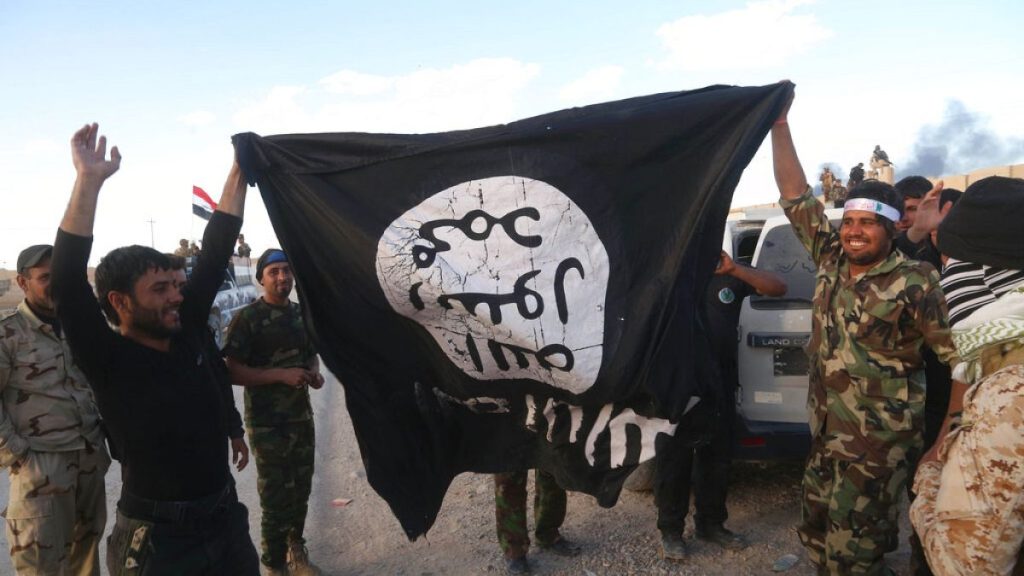A Swedish Woman Sentenced to 12 Years for Crimes Against Yazidi Women and Children
Introduction: A Historic Verdict in Sweden
In a landmark ruling, a Swedish court has sentenced a 52-year-old Swedish woman, Lina Ishaq, to 12 years in prison for committing heinous crimes against Yazidi women and children during her time as a member of the Islamic State (IS). The charges included genocide, crimes against humanity, and serious war crimes, marking the first time such offenses against the Yazidi people have been prosecuted in Sweden. This verdict brings a measure of justice to the victims and sets a legal precedent for addressing the atrocities committed by IS members.
Ishaq’s conviction is part of a growing global effort to hold individuals accountable for their roles in the brutal campaigns waged by IS, particularly against minority groups like the Yazidis. Her case not only highlights the horrors faced by Yazidi women and children but also sheds light on the complexities of radicalization and the challenges of prosecuting international crimes in domestic courts.
The Crimes: Enslavement, Abuse, and Forced Religious Conversion
During her time in Syria, Ishaq enslaved three Yazidi women and six children, subjecting them to months of physical abuse and psychological torment. She forced her captives to practice Islam, perpetuating the same extremist ideology she had embraced upon joining IS in 2013. These actions were part of a broader campaign of genocide and cultural erasure waged by IS against the Yazidi people, an ancient religious minority native to Iraq.
The crimes took place in the city of Raqqa, which served as the de facto capital of IS’s self-proclaimed caliphate from 2014 to 2017. Raqqa was a hub of terror, where thousands of Yazidis were forcibly brought after IS militants stormed their villages in Iraq’s Sinjar region in 2014. Women and girls were sold into sexual slavery, while boys were indoctrinated with jihadist ideology and trained as fighters. Ishaq’s role in this system of oppression was not only that of a bystander but an active perpetrator, exploiting and terrorizing her victims.
Lina Ishaq’s Background and Radicalization
Lina Ishaq’s journey into extremism began in Sweden, where she was radicalized before traveling to Syria in 2013. She was among approximately 300 Swedish nationals, many of them women, who joined IS during its rise to power. Her decision to bring her then-12-year-old son to Syria further underscores the depth of her commitment to the group’s ideology. Tragically, her son was recruited as a child soldier and died in battle at the age of 16.
Ishaq’s actions were not limited to her involvement in the enslavement and abuse of Yazidis. She had already been sentenced to six years in prison in Sweden for taking her son to Syria and allowing him to be recruited by IS. Her recent conviction for genocide and war crimes adds another layer to her culpability, as she is now held accountable for her direct role in the suffering of Yazidi women and children.
The Trial and Its Significance
The trial of Lina Ishaq is a significant milestone in the global fight against impunity for international crimes. It is the first time that IS’s atrocities against the Yazidi people have been tried in a Swedish court, reflecting Sweden’s commitment to prosecuting war crimes and crimes against humanity, even when they occur outside its borders.
The case also highlights the challenges of investigating and prosecuting such crimes, particularly when they involve foreign nationals and take place in conflict zones. Swedish authorities relied on extensive evidence, including testimony from Yazidi survivors, to build their case against Ishaq. Their efforts demonstrate the importance of international cooperation in addressing crimes that shocks the conscience of humanity.
The Yazidi Genocide and Its Aftermath
The Yazidi genocide, carried out by IS, has left deep scars on the Yazidi community. In 2014, IS militants stormed Yazidi towns and villages in the Sinjar region of Iraq, killing an estimated 5,000 Yazidis and displacing over 400,000 people. Thousands of women and children were abducted and subjected to unspeakable horrors, including sexual slavery, forced marriage, and religious conversion.
Today, many Yazidis remain displaced, unable to return to their homeland. Some have found refuge in countries like Sweden, where approximately 6,000 Yazidis now live. While the conviction of Lina Ishaq offers a measure of justice, it is a reminder of the long and difficult journey toward healing and accountability for the Yazidi people. The international community must continue to support efforts to prosecute perpetrators and rebuild the lives of survivors.
Conclusion: Justice and Accountability in the Aftermath of IS
The sentencing of Lina Ishaq is a step toward justice for the Yazidi women and children who suffered at her hands. However, it is only one piece of a much larger puzzle. The legacy of IS’s atrocities demands sustained attention and action, from prosecuting those responsible to supporting survivors and rebuilding shattered communities.
As the world grapples with the complexities of radicalization and the challenges of prosecuting international crimes, cases like Ishaq’s remind us of the importance of accountability. They also highlight the resilience and courage of survivors who continue to seek justice and rebuild their lives in the face of unimaginable trauma. The story of Lina Ishaq and her victims is a stark reminder of the horrors of extremism and the enduring need for compassion, justice, and unity in the face of such evils.












